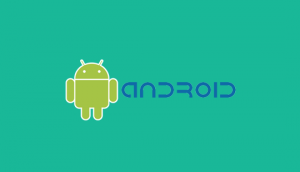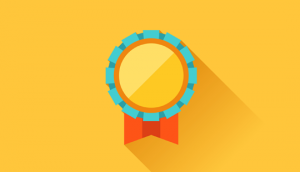We had the chance to talk with Sly Budgie founder and Unity 3D game developer Adam Single, and got to know more about his background, his thoughts and tips on Unity 3D, and, most importantly, his favorite game at the moment.
1) Let’s start with the usual. Could you tell us about yourself and how you discovered Unity?
I’m a programmer. I’ve been in the games industry professionally since the end of 2010, so not long. But it’s been a pretty jam-packed few years. I went straight from graduating from QANTM college into a position with the company I did my internship at. They wanted me to make a mobile game and I was a c++ programmer at the time. At least, that’s what had been taught in my degree, I’d never coded anything professionally before that. I did some research and that led me to Unity. Taught myself Unity and while at Bifrost studios released 4 mobile titles with it.
I left Bifrost to do become a contract developer and did some work for Disney Japan, I was the programmer on the first Digital Writing Residency in Australia for which we made Robot University for a huge, multi-touch screen public display at Queensland University of Technology’s state-of-the-art interactive learning and display space called The Cube. I am also the programmer for the indie bitpop band 7Bit Hero that combine video games and live musical performance. All of those projects were done in Unity.
2) As an experienced Unity developer, what benefits does Unity offer over other development tools?
There are many benefits offered by Unity over other development tools. Firstly, traditionally working with an engine, especially for a coder, is quite abstract. You’re dealing with code and only see things happening when you run a build. The 3D editor that made Unity so accessible when it first came out is a huge leap forward from that.
Secondly, using small scripts to control game object, and being able to visual place things within a scene make prototyping ideas extremely fast. Thirdly, the number of platforms that Unity can build to from a single code base is something that was unheard of, at least by me, before it came along. To be able to create a game for android, iOS, Mac and PC all with c# code, is amazing.
And lastly, the asset store. It’s a huge, vibrant marketplace that provides numerous free resources, again speeding up prototyping of ideas, and so many high quality assets that can be purchased for a fraction of the price it would cost you to make it yourself (your time is always worth something, even if it’s you “paying” yourself).
3) What inspired you to start your own Indie Game Studio?
I love working on other people’s ideas. Games programmers are luckier, in my opinion, than the other disciplines of game development. We get to see the faces of our players light up, as does the rest of the team, but we also get to see the faces of the designers and artists light up as we start to bring their ideas to life. But having said that, I consider myself part designer as well. Like most developers, my mind is buzzing with game ideas that I believe people would want to play. These ideas are usually a little left of field, often being inspired by AI concepts, and they may well not be “commercially viable”. I obviously believe otherwise, but generally speaking they’re would be considered risky. I knew if I was ever going to be able to make those sorts of games, I’d have to do it for myself. I’ve been lucky enough to find an amazing little team of talented individuals who think I might just know what I’m talking about.
4) How are you going to finance your studio? In other words, what are the great ways for indie game developers to finance their games?
Financing your own studio is always the first big hurdle. At least, figuring out a plan is. For me, that plan is to fit it into the cracks in my life, and bootstrap it. Let me explain those two things. I have a full-time job, I’m a programmer for a Serious Games company in Brisbane called Real Serious Games. It’s around a 40 minute commute. I have 2 children, my son is almost 4 and my daughter is a little over 6 months and about to start daycare as my wife returns to work. As you can imagine, that’s the hours of 5:30am till around 9pm (after dinner, nightly bath and bed routine and tidying up) accounted for. My weekends are for spending time with family and friends and of course the jobs and chores that didn’t get done during the weeknights. On an evening I work on 7Bit Hero or my studio. That might mean working on the actual game, which in itself could be design work, prototyping, game code etc., or it could be social media interaction, dev blog content.
That’s what I mean by the cracks. I haven’t given up my day job for Sly Budgie. I have to provide a steady income for my family’s sake. But it would be nice for the company to make some money while we work on our games. So this is where bootstrapping comes in. If you aren’t familiar with the term, it basically means doing whatever work pays money to cover the cost of doing your own thing. Like I said, for us, that’s not really anything. The work we do is considered sweat equity, it’s time we’re willing to put into the company. But any contract work we might pick up, will earn the company a little profit. And we are about to look into creating assets and selling them on the Unity Asset store. Bootstrapping is an excellent way for an indie studio to finance their games, and I’d recommend checking out the Well Placed Cactus guys’ website. They have written some great pieces on how they keep their little studio going with contract work.
5) From your experience as a developer for several successful gaming companies, what makes a great game developer?
What makes a great game developer is so hard to answer. A strong work ethic definitely. Making a game is way harder than anyone thinks it is before they do it. You don’t have to play games all day, every day. In fact, you won’t get far doing that. I saw a lot of people drop out of my game development college because they couldn’t stop doing that. Personally I’m too busy to play many games. But I do follow what’s being made. I read about them, I get to know as many people as I can that make them. I watch videos of them being played during lunch breaks sometimes. I talk about them, a lot. You need to be able to hold a discussion on a game. Not just state that you think it’s awesome and then have nothing else to add. And make games. A good developer is making games. Finishing games. If you’re working on something big, that is going to take you a year or two, take a break once in a while and do a game jam. So many important lessons can be learned from a game jam in a fraction of the time it will take you otherwise. And it might be pretty obvious, but being able to work in a team is pretty crucial as far as I’m concerned. There’s rarely any room for ego in a development team. And let the players decide any disagreement. No matter what you believe, if putting the game in the hands of players points to a different conclusion, listen to the players.
6) There has been a significant rise in the number of high quality mobile games. So, what makes one game stand out?
What makes a mobile game stand out? Man, that’s another hard question. On the app store, getting featured makes you stand out. And that’s a mix of making a quality product (visually, preformance-wise, content-wise, gameplay-wise), that showcases the features of the device, and a spot of luck. All you can really do there is polish your game. Don’t release anything half hearted. Get people to play it as early as possible and listen to what they have to say about it.
7) What is your favourite game right now, and why should we play it?
My favourite game right now is Crawl by Powerhoof. It’s fast and fun. Has a unique spin on the classic dungeon crawler. A stunningly nostalgic art style with a modern level of detail, especially animation-wise. And best of all it is played by a group of people sitting around a TV. Not enough games put you in a room with your mates anymore.
Thanks to Adam for answering our questions! Check out the Sly Budgie website and keep up with him on Twitter. Let us know what your experiences with Unity are, or what you’re playing at the moment at hi@polljoy.com or on Twitter, @polljoy!











